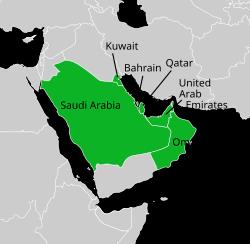
GCC Bond Market Sees Surge In Borrowing Activity

The GCC bond market has seen a significant uptick in activity this week, as borrowers capitalise on advantageous financial conditions. With borrowing costs narrowing to exceptionally tight levels, issuers from various sectors have eagerly entered the market, resulting in a diverse range of mandates.
A total of nine mandates were launched, spanning sovereigns, banks, and corporations. The focus of most issuers was on subordinated US dollar instruments, a move reflecting growing confidence in the region's debt markets. Sovereign issuers, particularly from the Gulf region, have been able to secure attractive pricing, benefitting from the favourable interest rate environment and strong demand.
Qatar, in particular, took the lead in driving the sovereign debt rally. The country's issuance included a dual-tranche offering, which was well received by the market. The deal included a $1 billion three-year senior unsecured bond and a $3 billion 10-year sukuk, with tight pricing at 3.625% and 4.25%, respectively. These rates reflect the strong investor appetite for GCC debt, especially for issuers with a solid credit rating like Qatar.
Analysts have pointed to the strategic positioning of these bonds, noting that the Gulf region continues to enjoy substantial interest from global investors. Many are drawn by the region's economic resilience, with some nations, such as Qatar and the UAE, benefiting from high oil prices and robust fiscal policies that provide a cushion against global economic volatility.
The corporate sector has also contributed to the flurry of activity, with a number of high-profile names entering the market to take advantage of the low-cost borrowing environment. Corporates have shown a particular preference for longer tenors, securing funds for expansion and infrastructure development. These deals are expected to further fuel investment in the region's key sectors, including real estate, energy, and transportation.
See also Bots Dominate Internet Traffic as Human Presence ShrinksThe rising interest in subordinated US dollar instruments has been particularly noticeable. These instruments are generally viewed as a more attractive option for issuers looking to manage their debt profiles while benefitting from lower borrowing costs. The trend highlights investor confidence in the regional markets, with many willing to accept the higher risk associated with subordinated debt in exchange for higher yields compared to traditional senior debt.
One key driver behind this rush to issue bonds is the stability of the GCC economies. With oil prices maintaining their upward momentum and many countries implementing fiscal reforms, the region has become an increasingly appealing destination for international investors. Additionally, the region's successful handling of the COVID-19 pandemic has reinforced the stability of its economies, further bolstering investor sentiment.
The demand for sukuk, a type of Islamic bond, also saw a notable rise. Issuers have used sukuk as a means to attract investors seeking Sharia-compliant products, with Qatar's $3 billion 10-year sukuk deal serving as a prime example. Sukuk continues to gain traction in the GCC as more issuers tap into the growing pool of ethical investment capital.
The influx of debt issuance has not only been a response to the current favourable conditions but also a reflection of the strategic financial planning by GCC governments and businesses. In an environment where global interest rates remain uncertain, securing financing now at tight levels is seen as a prudent move for issuers seeking to lock in advantageous terms before potential market volatility returns.
For investors, the tightening of borrowing costs has created opportunities for better yields compared to other global markets. With some emerging markets offering less attractive rates, GCC bonds remain an attractive proposition, particularly for those seeking diversification and a hedge against risk in other regions.
See also UAE Non-Oil Private Sector Growth Slows to 53.8Notice an issue? Arabian Post strives to deliver the most accurate and reliable information to its readers. If you believe you have identified an error or inconsistency in this article, please don't hesitate to contact our editorial team at editor[at]thearabianpost[dot]com. We are committed to promptly addressing any concerns and ensuring the highest level of journalistic integrity.
Legal Disclaimer:
MENAFN provides the
information “as is” without warranty of any kind. We do not accept
any responsibility or liability for the accuracy, content, images,
videos, licenses, completeness, legality, or reliability of the information
contained in this article. If you have any complaints or copyright
issues related to this article, kindly contact the provider above.

















Comments
No comment